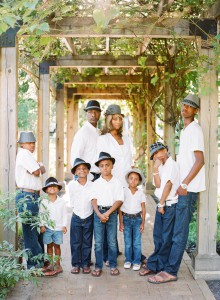Dear CEHD:
There is no perfect way to craft this note to you and be free from all critique, the appearance of unnecessary bias, or the possibility of offending. Ironically, the quest to be correct, neutral, and safe in our current context requires the falsifying of premises that are very painful to accept as truth. Trying to wait to find that perfect voice, the perfect words or a perfect time to say ANYTHING is implicitly agreeing to take a biased and potentially offending stance. Given the complexity of human cognition and emotion and the varied impact thoughts and feelings can have on affect and behavior, continuing to endorse being silent borders on neglect.
A week ago, I watched the national nightly news with my 7th grade son. The coverage of the Jamar Clark shooting in North Minneapolis began to fill our home. My son was only partially attending to the news until he heard, “North Minneapolis.” I’ll never forget the next sequence of events as his eyes widened while they simultaneously focused on this local, national news story. My son slowly turned to me with a confused, yet subtly critical question for me, “Is this happening now?” He already knew the answer to that question, but what he respectfully and maturely embedded in that confused, critical question was, “Why aren’t we talking about this one?” Over time, we’ve talked about, Trayvon Martin, Tamir Rice, I Can’t Breathe, Ferguson, Charleston and the Missouri Football team. We’ve talked about Paris, Syria and even the change in U.S./Cuba diplomatic relationships. Yet, on this particular local, national story, I was embarrassingly silent.
Was it because I was afraid he would ask why I’m not a part of the 4th precinct protests and my answer would weaken his trust in me as reliable social commentator? Was it because I didn’t want to land too firmly on one side just in case a new fact could weaken my stance? Was it because it’s easier to be vocal when it’s happening to a neighbor’s house, but less so when it’s my own backyard? I finally presented the facts like a good fair and balanced reporter. His first response was, “So they shot him in the head?” We proceeded to have the all too normal, deeper conversation. Perhaps it doesn’t really matter the reason why I was silent. Because in my silence, I neglected to see my son as an affected, connected and important person who needed to hear my voice long before he heard it first on the national news. I assumed or maybe hoped my silence would go unnoticed.
A college-aged black male was shot and killed by a person sworn to protect and serve. Witnesses said Jamar Clark was handcuffed when shot. The president of the Police Officers Federation of Minneapolis challenged the witnesses to repeat their statements under a federal investigation. As a black male, I’m worried that those who are concerned about blanket accusations made against all police officers will want to minimize the facts or construct an explanation that is safer to process. I feel as though if I’m shot and killed by a police officer, too many will search for a reason to justify the homicide to avoid engaging in the possibility that deadly force was not the best option in my death. As a father of six black males, I’m worried that those who are uncomfortable or annoyed with the Black Lives Matter movement will take their frustrations out on my sons if any of them express an opinion that appears to align with black lives mattering.
There are students, staff, and faculty in our college who are being directly impacted by an understandably overwhelming series of local, national and global events. We encourage you to find time to be supportive and caring, to be incorrect, to be biased and to even take risks in connecting with others to share your voices as we imperfectly find the appropriate way to not neglect this current…………messiness. Hopefully, we can perfect the art of becoming comfortable imperfectly addressing when policing, passion, prejudice, protection, patriotism and politics intersect with varying degrees of apathy.




